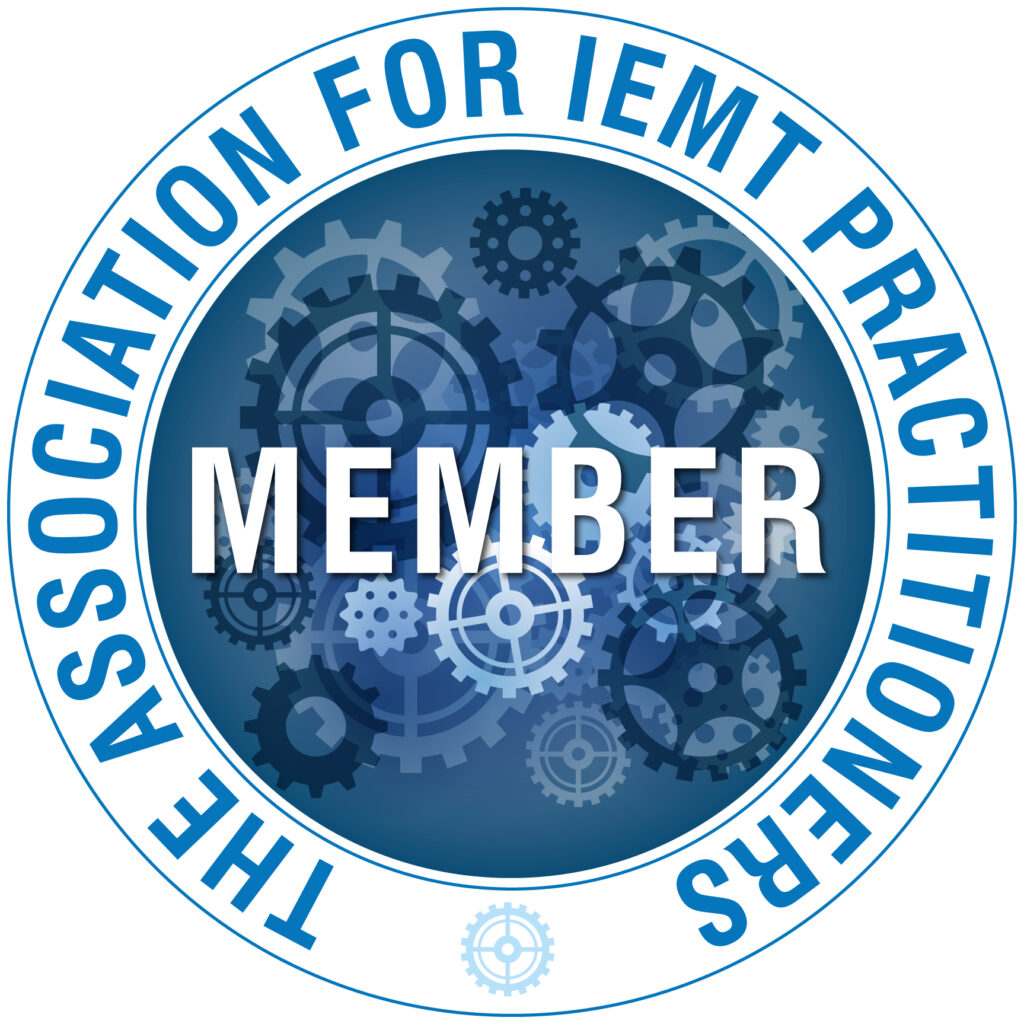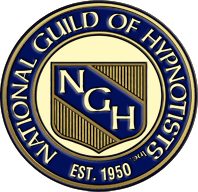Hypnosis is a powerful tool that helps men reconnect with their true selves, addressing the unique challenges they face. By understanding how hypnosis works and using it in combination with holistic coaching and NLP (Neuro-Linguistic Programming), men can achieve peace, calm, and clarity in their lives.
Hypnosis works by accessing the subconscious mind, where deep-seated beliefs, habits, and patterns reside. During a hypnosis session, a hypnotherapist guides the individual into a relaxed state, bypassing the critical conscious mind. This allows the subconscious to be more receptive to positive suggestions and affirmations, which can lead to profound changes in behavior and mindset. For example, a man struggling with self-esteem issues might undergo confidence hypnosis to reinforce positive self-beliefs and eliminate self-doubt.
When combined with holistic coaching, hypnosis becomes even more effective. Holistic coaching considers the whole person, including their physical, emotional, and spiritual well-being. It provides personalized strategies that complement hypnosis to foster overall growth and healing. This approach helps men tackle issues such as stress, anxiety, and emotional blockages, promoting a balanced and fulfilling life.
NLP adds another layer of depth to this transformative process. NLP techniques focus on understanding and changing the patterns of thought and behavior that affect a person’s experience of the world. By integrating NLP with hypnosis, men can reprogram their minds to react differently to situations that previously caused stress or negativity. This synergy of techniques helps in breaking down complex problems into manageable parts, making it easier to achieve long-term goals.
Ultimately, the combination of hypnosis, holistic coaching, and NLP empowers men to reconnect with their authentic selves. This holistic approach not only addresses immediate challenges but also builds a strong foundation for ongoing personal development. Men who embrace these tools often find that they can navigate life’s challenges with greater ease, confidence, and resilience, leading to a more peaceful and clear-minded existence.
What is Hypnosis?
Hypnosis is a state of focused relaxation where the mind becomes highly receptive to suggestions. This state allows individuals to modify old patterns of thinking and behavior. It’s a safe and effective technique that combines physical relaxation and mental focus to bring about positive changes.
The Science Behind Hypnosis
Hypnosis involves guiding someone into a trance-like state where their attention is highly concentrated, and they are more open to suggestions. This state is typically achieved through a process of induction which might include deep breathing, progressive muscle relaxation, or focused visualization.
In this state, the brain’s activity changes. Research using EEG and fMRI has shown that during hypnosis, there is increased activity in the brain’s anterior cingulate cortex, insula, and prefrontal cortex. These areas are associated with focused attention, sensory processing, and the regulation of consciousness and awareness.
How Hypnosis Works
When you’re in a hypnotic state, your conscious mind (the part that is analytical and critical) becomes less active, while your subconscious mind (the part that controls habits and automatic behaviors) becomes more accessible. This allows positive suggestions to be more readily accepted and integrated as well as an ability to understand more about one’s inner world.
For example, if a man is seeking to increase his confidence, during hypnosis, he will likely be able to understand where his lack of confidence comes from ultimately replacing those limiting thoughts with ones that align with his upgraded values.
Applications of Hypnosis
Hypnosis is used in various areas of mental and physical health:
- Stress Reduction: By promoting deep relaxation and helping to reframe negative thought patterns.
- Pain Management: Assisting in the reduction of chronic pain by altering the perception of pain signals.
- Behavioral Change: Helping individuals quit smoking, lose weight, or overcome other habits by addressing the subconscious motivations behind these behaviors.
- Sleep Improvement: Using sleep hypnosis techniques to foster healthier sleep patterns and address insomnia.
What is Holistic Coaching?
Holistic coaching focuses on the whole person, integrating mental, emotional, and spiritual well-being. This approach helps men align their goals and actions with their core values and beliefs. Holistic coaching supports personal growth and self-discovery.
The Principles of Holistic Coaching
- Integration of Mind, Body, and Spirit: Unlike traditional coaching, which may focus solely on achieving specific goals, holistic coaching looks at how various aspects of a person’s life are interconnected. It considers physical health, emotional resilience, mental clarity, and spiritual fulfillment as essential components of well-being.
- Personalized Approach: Each individual is unique, and holistic coaching tailors strategies to fit personal needs and circumstances. This personalized method ensures that the coaching process is relevant and effective.
- Core Values and Beliefs: Holistic coaching emphasizes understanding and aligning with one’s core values and beliefs. This alignment creates a sense of purpose and direction, making it easier to set and achieve meaningful goals.
- Sustainable Change: By addressing underlying issues rather than just symptoms, holistic coaching promotes sustainable, long-term change. It encourages continuous self-reflection and growth.
Benefits of Holistic Coaching for Men
- Enhanced Self-Awareness: Men gain a deeper understanding of their strengths, weaknesses, and motivations. This self-awareness is crucial for personal growth and development.
- Improved Emotional Health: Holistic coaching provides tools and techniques for managing stress, anxiety, and emotional challenges. This leads to greater emotional stability and resilience.
- Stronger Relationships: By understanding themselves better, men can improve their relationships with others. Holistic coaching fosters better communication and empathy.
- Achieving Balance: It helps men find a balance between work, personal life, and other commitments, leading to a more harmonious and fulfilling life.
Holistic Coaching in Practice
Consider a man who feels stuck in his career. A holistic coach would not only help him identify career goals but also explore how his job aligns with his personal values and passions. They might use NLP techniques to reframe negative thoughts about work and employ mindfulness practices to manage job-related stress. This comprehensive approach ensures that the individual’s career growth is supported by overall well-being.
What is NLP (Neuro-Linguistic Programming)?
NLP is a methodology that explores the relationship between thoughts, language, and behavior patterns. It aims to improve an individual’s understanding and communication skills, fostering positive changes. NLP techniques help men overcome limiting beliefs and develop more effective strategies for achieving their goals.
How NLP Works
NLP is based on the idea that our thoughts, language, and behaviors are interconnected and can be restructured to achieve desired outcomes. It uses various techniques and strategies to help individuals understand and change their internal and external communications, ultimately improving their lives.
- Modeling Excellence: NLP involves studying successful people and modeling their thought patterns, language, and behaviors to replicate their success. This can be applied in various areas, such as business, sports, and personal development.
- Anchoring: This technique involves creating a stimulus-response pattern to invoke a desired emotional state. For instance, a person might anchor feelings of confidence to a specific gesture, which they can then use in stressful situations to boost their confidence.
- Reframing: NLP teaches individuals to look at situations from different perspectives to change their emotional responses. This can help turn negative experiences into opportunities for growth and learning.
- Visualization: By using detailed mental imagery, individuals can rehearse and prepare for future situations, enhancing their performance and confidence.
Benefits of NLP for Men
- Improved Communication Skills: NLP helps men understand and improve their communication patterns, leading to better relationships and interactions.
- Enhanced Personal Development: By changing limiting beliefs and behaviors, men can achieve their personal and professional goals more effectively.
- Stress and Anxiety Reduction: NLP techniques can help manage and reduce stress and anxiety by changing how individuals perceive and react to situations.
- Increased Confidence: NLP can boost self-esteem and confidence by helping men reframe negative thoughts and focus on their strengths.
Real-Life Application of NLP
Imagine a man who struggles with public speaking. Through NLP, he can learn to identify and reframe the negative thoughts that trigger his anxiety. By using anchoring and visualization techniques, he can create positive associations with public speaking, ultimately reducing his fear and enhancing his performance.
“Healing is a matter of time, but it is sometimes also a matter of opportunity.” – Hippocrates
Common Issues Addressed by Hypnosis, Holistic Coaching, and NLP for Men
Mental Health Challenges
Anxiety and Stress
Hypnosis can be highly effective in reducing anxiety and managing stress. By accessing the subconscious mind, it helps individuals identify and alter the root causes of their anxiety and stress. Holistic coaching provides ongoing support and strategies to maintain balance, while NLP offers tools to reframe negative thoughts.
Depression
Hypnotherapy offers techniques to improve mood and motivation, providing men with the tools they need to overcome feelings of depression and hopelessness. Holistic coaching helps men explore their emotional and spiritual well-being, while NLP helps reframe negative thought patterns and promotes a more positive outlook on life.
Sexual Health
Erectile Dysfunction
Hypnosis can improve sexual performance and confidence by addressing the psychological factors contributing to erectile dysfunction. NLP techniques help men change their thought patterns and reduce performance anxiety, while holistic coaching supports overall sexual health and relationship satisfaction.
Low Libido
Hypnotherapy can boost sexual desire by uncovering and addressing any underlying psychological barriers. Holistic coaching helps men understand and nurture their desires, while NLP reinforces positive changes in behavior and mindset.
Personal Development
Confidence and Self-Esteem
Building a positive self-image and assertiveness is crucial for personal growth. Hypnosis helps men develop greater confidence and self-esteem by changing negative self-perceptions and promoting a more positive self-view. NLP techniques enhance communication skills, while holistic coaching fosters self-awareness and personal empowerment.
Overcoming Procrastination
Enhancing motivation and productivity through hypnotherapy can help men overcome procrastination. By focusing on the subconscious mind, hypnotherapy addresses the underlying reasons for procrastination and fosters a proactive mindset. NLP offers practical tools for goal setting and achievement, while holistic coaching provides ongoing support.
Addiction and Habits
Smoking Cessation
Hypnosis provides effective strategies for quitting smoking by targeting the subconscious triggers and habits associated with smoking. This method, combined with NLP techniques, can change the associations and beliefs around smoking. Holistic coaching supports the journey to a healthier lifestyle.
Breaking Unwanted Habits
Hypnosis can address habits like nail-biting or overeating by altering the subconscious patterns that drive these behaviors. NLP techniques help replace negative habits with positive ones, while holistic coaching ensures a supportive environment for sustainable change.
Benefits of Hypnosis, Holistic Coaching, and NLP for Men
Emotional Resilience
Hypnosis helps men develop a balanced emotional state, enabling them to respond rather than react to life’s challenges. Holistic coaching supports emotional growth and resilience, while NLP provides tools to manage emotions effectively.
Improved Relationships
Enhancing communication skills and relationship satisfaction through hypnosis can lead to better connections with others. NLP techniques improve interpersonal skills, and holistic coaching fosters deeper understanding and empathy in relationships.
Physical Health
The impact of mental well-being on physical health is significant. Hypnosis promotes better physical health by reducing stress, improving sleep, and fostering healthier habits. Holistic coaching ensures a balanced approach to physical and mental well-being, while NLP helps instill positive habits.
How Hypnosis, Holistic Coaching, and NLP Work
Hypnosis, holistic coaching, and Neuro-Linguistic Programming (NLP) can work synergistically to help individuals achieve personal growth, healing, and behavioral change. Here’s a breakdown of how each process typically works:
Hypnosis:
-
- Purpose: Hypnosis aims to induce a state of deep relaxation and heightened suggestibility, where the subconscious mind becomes more open to positive suggestions and changes.
- Process: A hypnotherapist guides the client into a relaxed state using relaxation techniques and focused attention. In this state, the therapist can suggest changes in thought patterns, behaviors, or perceptions.
- Applications: It’s used for a wide range of purposes including managing stress, overcoming fears and phobias, improving confidence, and addressing habits like smoking cessation or weight management.
Holistic Coaching:
-
- Purpose: Holistic coaching addresses the client’s entire well-being—physical, mental, emotional, and spiritual—integrating various modalities to support holistic healing.
- Process: A holistic coach works collaboratively with the client to set goals, identify obstacles, and create personalized strategies for growth and healing. This can include lifestyle changes, dietary adjustments, mindfulness practices, and more.
- Applications: It’s effective for improving overall wellness, managing chronic conditions, navigating life transitions, and enhancing personal fulfillment and happiness.
Neuro-Linguistic Programming (NLP):
-
- Purpose: NLP focuses on the connection between neurological processes (neuro-), language (linguistic), and behavioral patterns that have been learned through experience (programming).
- Process: NLP techniques aim to reprogram thought patterns and behaviors by exploring how language and mental habits influence our perceptions and actions. Techniques often include visualization, anchoring positive states, reframing negative beliefs, and modeling successful behaviors.
- Applications: NLP is used to enhance communication skills, improve relationships, boost confidence, overcome phobias, and achieve personal and professional goals.
Integration of Processes:
- Complementary Approaches: Each of these approaches can be used independently or in combination, depending on the client’s needs and goals. For example, a holistic coach might use NLP techniques to help a client overcome limiting beliefs, while incorporating hypnosis to reinforce positive changes at a subconscious level.
- Personalization: The effectiveness of these approaches often lies in their personalized application to the client’s unique circumstances and desired outcomes.
- Long-Term Benefits: By addressing the whole person—mind, body, and spirit—these modalities can promote sustainable change, resilience, and a deeper sense of well-being over time.

Addressing Myths and Misconceptions
- Myth: Hypnosis involves mind control or loss of consciousness.
-
- Reality: Hypnosis is a collaborative process where the individual remains fully aware and in control of their actions. It’s a state of deep relaxation and focused attention, akin to a meditative state, where the subconscious mind becomes more receptive to positive suggestions. Clients can reject any suggestion that does not align with their values or intentions.
- Myth: Holistic coaching is unscientific or only focuses on alternative therapies.
-
- Reality: Holistic coaching integrates evidence-based approaches from various disciplines, including psychology, nutrition, exercise science, and mindfulness. It aims to address the whole person—mind, body, and spirit—using personalized strategies to support overall well-being and personal growth.
- Myth: NLP involves manipulation of thoughts and behaviors without ethical boundaries.
-
- Reality: NLP is a set of techniques and principles designed to understand and change human behavior patterns. When used ethically and professionally, NLP focuses on empowering individuals to overcome limiting beliefs, improve communication, and achieve goals through conscious awareness and choice.
Safety and Efficacy:
- Safety: Hypnotherapy, holistic coaching, and NLP are safe practices when conducted by trained and qualified professionals. They prioritize the well-being and autonomy of the client throughout the process. Clients are actively involved in setting goals, discussing techniques, and providing feedback.
- Efficacy: These modalities offer effective solutions for a wide range of issues, including stress management, anxiety, phobias, habit change, and personal development. They can provide lasting results by addressing underlying causes rather than just managing symptoms. Many clients experience significant improvements in a relatively short time frame, often without the need for ongoing therapy or medication dependency.
- Long-Term Benefits: Unlike quick-fix solutions, hypnotherapy, holistic coaching, and NLP focus on sustainable change and personal empowerment. They equip individuals with tools and strategies to continue their growth and maintain positive outcomes independently. By fostering self-awareness, resilience, and adaptive coping skills, these modalities support long-term well-being and personal fulfillment.
In conclusion, debunking myths and understanding the safety and efficacy of hypnosis, holistic coaching, and NLP underscores their value as collaborative processes that empower individuals to achieve positive change in a safe, supportive environment. When practiced by skilled professionals with respect for ethical boundaries and client autonomy, these modalities can lead to profound personal growth and lasting improvements in quality of life.
“The journey of a thousand miles begins with one step.” – Lao Tzu
Taking the Next Step
Starting Your Journey
Embarking on a journey of personal growth and well-being through hypnotherapy, holistic coaching, or Neuro-Linguistic Programming (NLP) begins with taking proactive steps towards understanding and experiencing these modalities. Here’s how you can start your journey:
- Research and Understanding:
-
- Educate Yourself: Take time to research each modality—hypnotherapy, holistic coaching, and NLP—to understand how they work and their potential benefits for your specific needs. There are numerous resources available online, including articles, books, and testimonials from individuals who have benefited from these practices.
- Finding Qualified Practitioners:
-
- Seek Recommendations: Ask friends, family, or trusted healthcare professionals for recommendations for qualified practitioners in your area. Look for practitioners who have certifications, training, and experience in their respective fields.
- Check Credentials: Verify credentials and certifications to ensure the practitioner meets professional standards and adheres to ethical guidelines established by relevant professional associations.
- Scheduling an Initial Consultation:
-
- Purpose: An initial consultation serves as an opportunity to meet the practitioner, discuss your goals and concerns, and learn more about how they approach treatment. It’s also a chance to assess whether you feel comfortable and confident in their abilities to support your journey.
- What to Expect: During the consultation, the practitioner may ask about your medical history, current challenges, and what you hope to achieve through their services. They may explain their methodology, techniques, and expected outcomes based on your individual circumstances.
- Assessing Compatibility:
-
- Personal Connection: Pay attention to how you feel during the consultation. It’s important to establish a rapport and sense of trust with your practitioner, as this relationship is integral to the success of your therapeutic journey.
- Alignment with Goals: Evaluate whether the practitioner’s approach aligns with your personal goals and values. Effective therapy often involves a collaborative effort where your input and feedback are valued throughout the process.
- Committing to the Process:
-
- Setting Expectations: Understand that personal growth and change often take time and commitment. Discuss realistic expectations with your practitioner regarding the frequency of sessions, duration of treatment, and anticipated outcomes.
- Open Communication: Maintain open communication with your practitioner throughout the process. Share any concerns, questions, or insights that arise during sessions to ensure your needs are being addressed effectively.
By taking these initial steps—educating yourself, finding qualified practitioners, scheduling consultations, and assessing compatibility—you can begin your journey towards holistic healing, personal empowerment, and positive change through hypnotherapy, holistic coaching, or NLP. Each step is a pivotal part of laying the foundation for a transformative experience that supports your overall well-being and life goals.
Frequently Asked Questions
How does hypnosis feel?
- Answer:Hypnosis feels like a state of deep relaxation and focused attention. You remain fully aware and in control throughout the session.
Can anyone be hypnotized?
- Answer:Most people can be hypnotized if they are willing and open to the process. The key is a willingness to relax and follow the hypnotherapist’s guidance. Check out my hypnosis readiness quiz to find out more.
What is hypnotherapy, holistic coaching, or NLP, and how can it help me?
- Answer: Hypnotherapy uses hypnosis to help achieve specific behavioral or emotional changes. Holistic coaching addresses overall well-being through integrated approaches. NLP focuses on changing thought patterns and behaviors to achieve personal goals and improve communication skills.
Is hypnosis like what I see on TV or in movies, where people lose control?
- Answer: No, hypnosis used therapeutically involves a state of deep relaxation and heightened focus. You remain aware and in control throughout the process, and you cannot be made to do anything against your will or values.
How does holistic coaching differ from traditional therapy?
- Answer: Holistic coaching takes a comprehensive approach, considering all aspects of your life—physical, emotional, mental, and spiritual—to promote overall well-being and personal growth. It often integrates lifestyle changes, nutrition, mindfulness, and other modalities tailored to your individual needs. It also consider the person receiving treatment as the expert and the coach being someone who will help support them to discover the answers within themselves.
What can I expect during a session with a hypnotherapist, holistic coach, or NLP practitioner?
- Answer: Sessions typically involve discussions about your goals, challenges, and desired outcomes. Depending on the modality, techniques such as guided imagery, relaxation exercises, goal-setting, or cognitive restructuring may be used to facilitate change.
How many sessions will I need to see results?
- Answer: The number of sessions can vary based on individual needs and goals. Some clients experience benefits after just a few sessions, while others may benefit from ongoing support. Your practitioner will discuss a treatment plan tailored to your specific situation.
Is hypnotherapy, holistic coaching, or NLP safe?
- Answer: Yes, when practiced by qualified professionals, these modalities are safe. They prioritize your well-being and involve your active participation in setting goals and discussing treatment approaches.
Can hypnotherapy, holistic coaching, or NLP help with specific issues like anxiety, stress, phobias, or habits?
- Answer: Yes, these modalities are effective for addressing a wide range of issues, including anxiety, stress management, phobias, smoking cessation, weight management, improving self-esteem, and achieving personal goals.
How do I find a qualified hypnotherapist, holistic coach, or NLP practitioner?
- Answer: Seek recommendations from trusted sources, such as friends, family, or healthcare professionals. Look for practitioners who are certified, have relevant training, and belong to reputable professional associations.
What should I look for in choosing a practitioner?
- Answer: Consider factors such as credentials, experience, approach to treatment, and personal rapport. It’s important to choose someone with whom you feel comfortable and who understands your goals and concerns.
Can I combine hypnotherapy, holistic coaching, or NLP with other forms of therapy or treatment?
Answer: Yes, these modalities can complement other forms of therapy or treatment. It’s important to inform your practitioners about any other therapies or treatments you are undergoing to ensure a coordinated approach.








